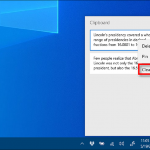The process of billing has been an integral part of businesses since time immemorial. Did you know that it’s as old as 3000 BC? Yes, its first evidence is found in the clay tablets of Mesopotamia that recorded transactions.
Fast forward to the 21st century, a good subscription billing platform that holds multiple processes like subscription management, billing, accounting, and payment processing together is indispensable for a SaaS business. Checklist for high risk businesses.
The global subscription and billing management market will hit USD 7.8 billion by 2025! And because of its humongous popularity and a variety of benefits, it becomes essential to get the right platform of billing for your business. So, here are some crucial points for you to take note of:
1. Subscription Management
Businesses require a platform that can handle all the changes in the preferences of the users as well as the changes within the business itself. Some questions that are worth asking yourself at this point include:
- Can the platform support multiple subscription plans distinguished by pricing, contract duration, and add-ons?
- Can you manage trials and free trials for a customisable duration?
- Does the platform support repetitive and daily business operations like refunds and manual overrides?
- Is the process of performing actions like cancelling or reactivating a subscription user-friendly?
2. Recurring Billing
You should aim for a recurring billing system that is flexible and can adjust with the changes in your pricing. So, ask yourself the following questions:
- Are one time, repeating, and usage-based charges supported by the solution?
- Can you set up different subscription payment schedules?
- Does the solution support invoice delivery across various channels?
- Are there any customisable options for producing an invoice?
3. Recurring Payments
If your business model is a self-serve subscription one, then you may require multiple gateways. But if your model is sales-driven, you will need support for offline payment methods. Hence, choose a suitable platform by asking questions like:
- Does the solution allow you to configure the checkout page while complying with the Payment Card Industry (PCI)?
- Does the platform support more than a few payment providers?
- What are the types of payment it supports?
- Does the platform support the payment method “Tokenization”?
- Does it have prevention and fraud detection mechanisms in place?
4. Failed Payment Handling
For subscription businesses defined by huge transaction volume, having this feature is crucial. So, ask questions like:
- Does the platform have an automated process for retrying failed payments?
- How does the platform ensure that payment retries are attempted when the probability of them succeeding is high?
- Can the solution automate email notifications for subscribers?
5. Accounting
Your billing platform should synchronise with your accounting system. It should automatically calculate tax according to the area you’re selling. So, you must ask questions like:
- Does the platform enable you to apply and manage taxes on the basis of your place of registration?
- Can it map the billing information into your accounting system easily?
- Does it have automated functionalities for handling sales taxes?
6. Analytics and Reporting
The recurring payments solution is a system that collects revenue. Naturally, it should give you a greater degree of reporting accuracy and diagnostic abilities to analyse deeply.
Some functionalities of reliable subscription billing are:
- Finance and audit reports for making critical decisions
- Revenue reporting
- Operational reports
- Subscription metrics
- Configurable dashboards
Lastly, make sure that you hire someone that provides you full support till the onboarding process draws to an end. The system handles highly confidential data, and therefore, make sure that you have a medium to reach out for help in case of any issues.



